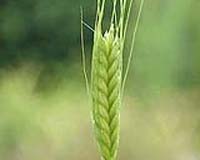 |
Geneva (AFP) March 30, 2011 Japan on Wednesday asked trading partners at the World Trade Organization not impose what it described as unjustifiable import restrictions on its exports. Explaining actions taken on food safety following the nuclear accident at Fukushima No.1 plant, a Japanese envoy to the WTO said: "Japan would like to request WTO members not to overreact by implementing unjustifiable import restrictions." The country outlined that it had restricted distribution of agricultural products that may have been contaminated, and that it was monitoring levels of radioactive contaminants in order to prevent potential food safety risks. It added that it was striving to "provide precise information in a timely manner" to its trading partners about the situation and therefore, in return, it called on WTO members to not overreact. No country commented on Japan's statement, a WTO official said. Several countries, including China, Taiwan, Singapore and the United States, have banned some food imports from Japan on fears of radioactive contamination.
earlier related report "The European Union will look at this question" at experts level, said European Commission spokesman on health issues Frederic Vincent. "We will take plutonium contamination into account." Measures activated in Europe last week over fears of radiation contamination after Japan's nuclear crisis touch on iodine-131, caesium-134 and caesium-137. But the detection of plutonium in soil this week at the stricken Fukushima nuclear plant has sparked new fears. "The situation is serious but surveillance is under way and if there is a need to broaden the controls, the EU will do that," the spokesman added. The Commission, the 27-nation bloc's executive arm, imposed emergency tests on imports of Japanese food and feed a week ago originating in or consigned from areas "most affected by the accident" at the Fukushima Daiichi plant. Deliveries must come "accompanied by a declaration, to be provided by the Japanese authorities, attesting that the product does not contain levels of radionuclides that exceed the EU's maximum permitted levels." Radioactive elements listed under the special regulation are: iodine-131, caesium-134 and caesium-137. Importers will be required to notify national authorities two days before landings and physical checks in labs "will be carried out on at least 10 percent of the consignments." The EU commission says Japan may export to the EU fishery products, bivalve molluscs (seafood), casings and pet food as well as fruits and vegetables. Imports to the EU of Japanese agricultural products were worth just over 200 million euros in 2010.
Share This Article With Planet Earth
Related Links Farming Today - Suppliers and Technology
 Good wheat harvest expected in Pakistan, despite floods
Good wheat harvest expected in Pakistan, despite floodsRome (AFP) March 30, 2011 The Food and Agriculture Organisation (FAO) said Wednesday that Pakistan can expect a good wheat harvest despite severe flooding last year as seeds distributed to flood victims begin to ripen. "FAO spent $54 million of international donor funding buying and distributing quality wheat seeds as part of its emergency intervention that began last August," the Rome-based UN agency said in a state ... read more |
|
| The content herein, unless otherwise known to be public domain, are Copyright 1995-2010 - SpaceDaily. AFP and UPI Wire Stories are copyright Agence France-Presse and United Press International. ESA Portal Reports are copyright European Space Agency. All NASA sourced material is public domain. Additional copyrights may apply in whole or part to other bona fide parties. Advertising does not imply endorsement,agreement or approval of any opinions, statements or information provided by SpaceDaily on any Web page published or hosted by SpaceDaily. Privacy Statement |